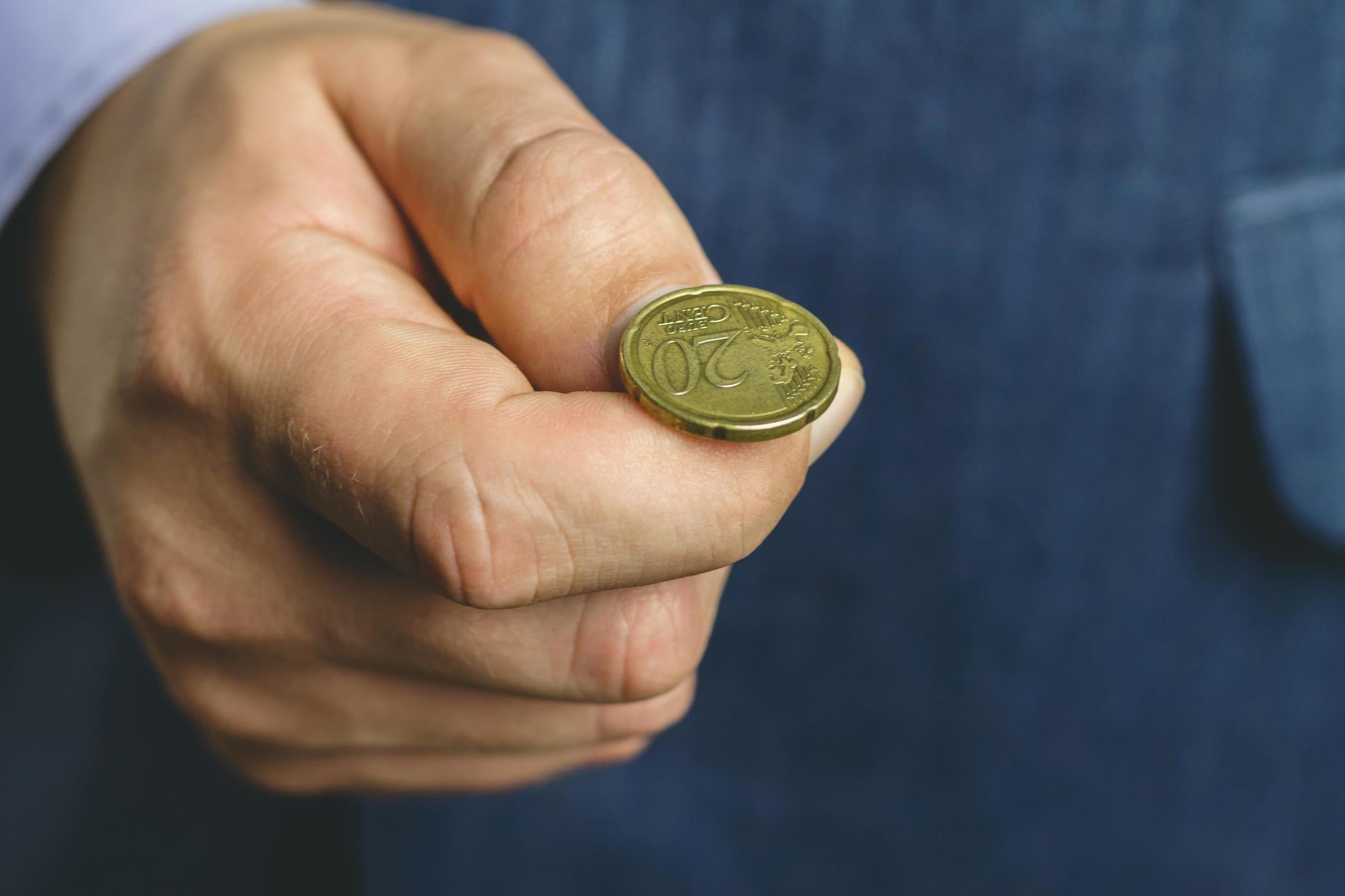Making major decisions using a coin toss makes people happier, study finds
Most participants said they were more likely to make same decision again

Using a coin toss to decide major life decisions may ultimately make you happier, a new study has found.
In addition to coinciding with higher overall happiness after a six month period, the study titled: The Review of Economic Studies, and published in the Oxford University Press, also found that people who rely on a coin to help make a decision are more likely to follow through with their choice and be more satisfied.
To find out the impact of using a coin toss, economist and Professor Steven Levitt from the University of Chicago asked people to make important decisions such as whether to quit a job, move, end a relationship or quit smoking using the affirmative and negative assigned to the heads or tails of a coin.
Users were also asked to include their own questions, such as: “Should I get a tattoo?”
Prior to the coin toss, volunteers were instructed to identify a third party to verify their outcomes.
After two months, participants and their third parties were asked to conduct a survey, which found “participants favoured the status quo, making a change less frequently than they predicted they would before the coin toss,” according to Phys.org.
However, a survey conducted after six months found this “bias towards the status quo was gone”.
According to the six-month survey, those who were instructed to make certain changes regarding major decisions were more likely to do so and be happier as a result.
Participants also said they were more likely to make the same decision if they were to choose again.
According to the researchers, the findings were “inconsistent” with the conventional theory of choice, which states that “people who are on the margins should, on average, report equal happiness regardless of which decision they made”.
“Society teaches us ‘quitters never win and winners never quit,’ but in reality the data from my experiment suggests we would all be better off if we did more quitting," Levitt said. “A good rule of thumb in decision making is, whenever you cannot decide what you should do, choose the action that represents a change, rather than continuing the status quo.”
Join our commenting forum
Join thought-provoking conversations, follow other Independent readers and see their replies
Comments
Bookmark popover
Removed from bookmarks